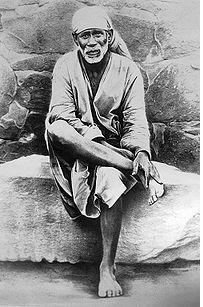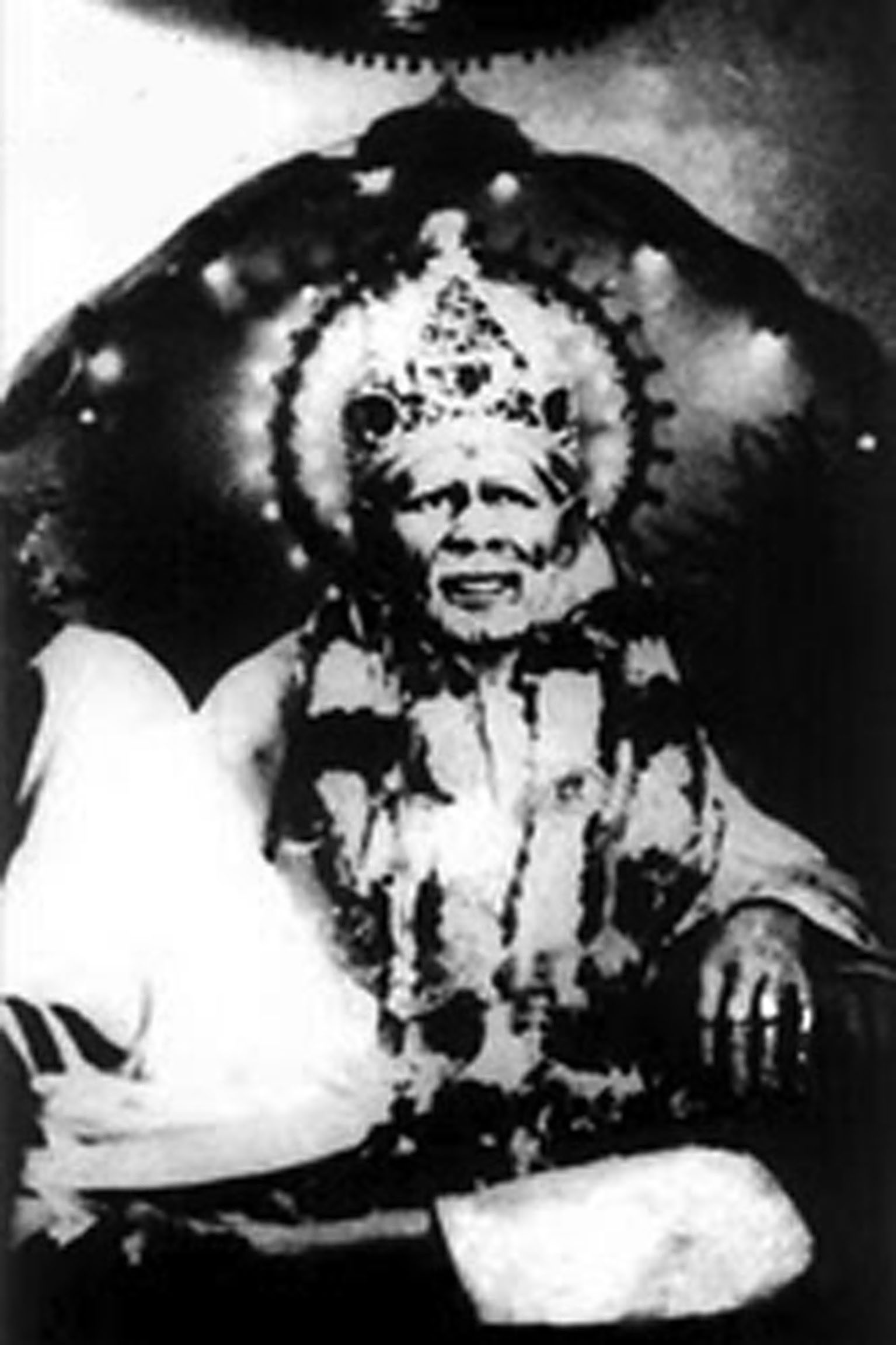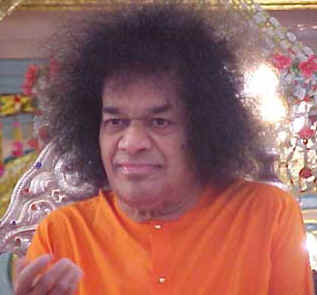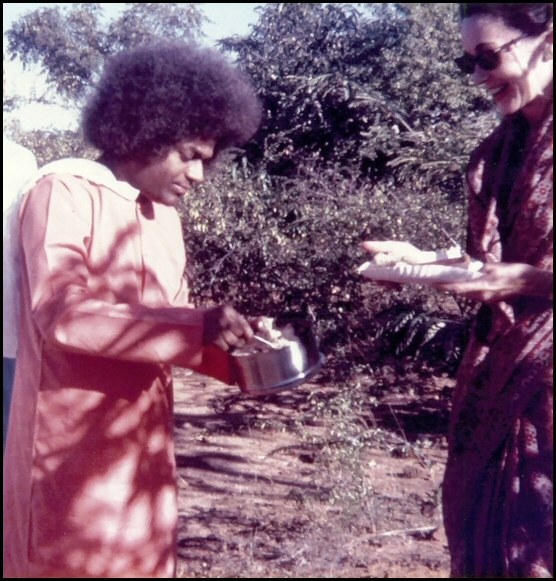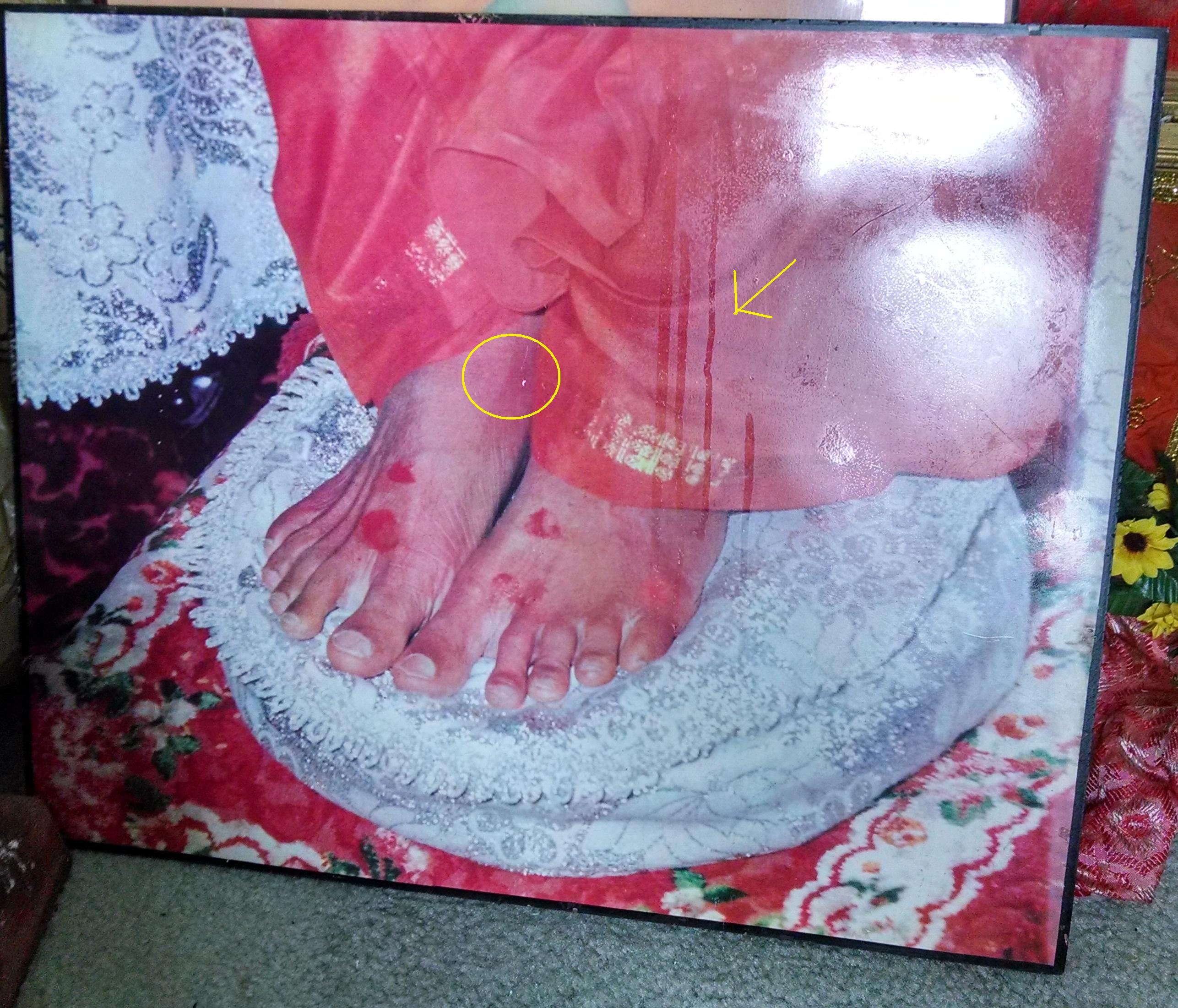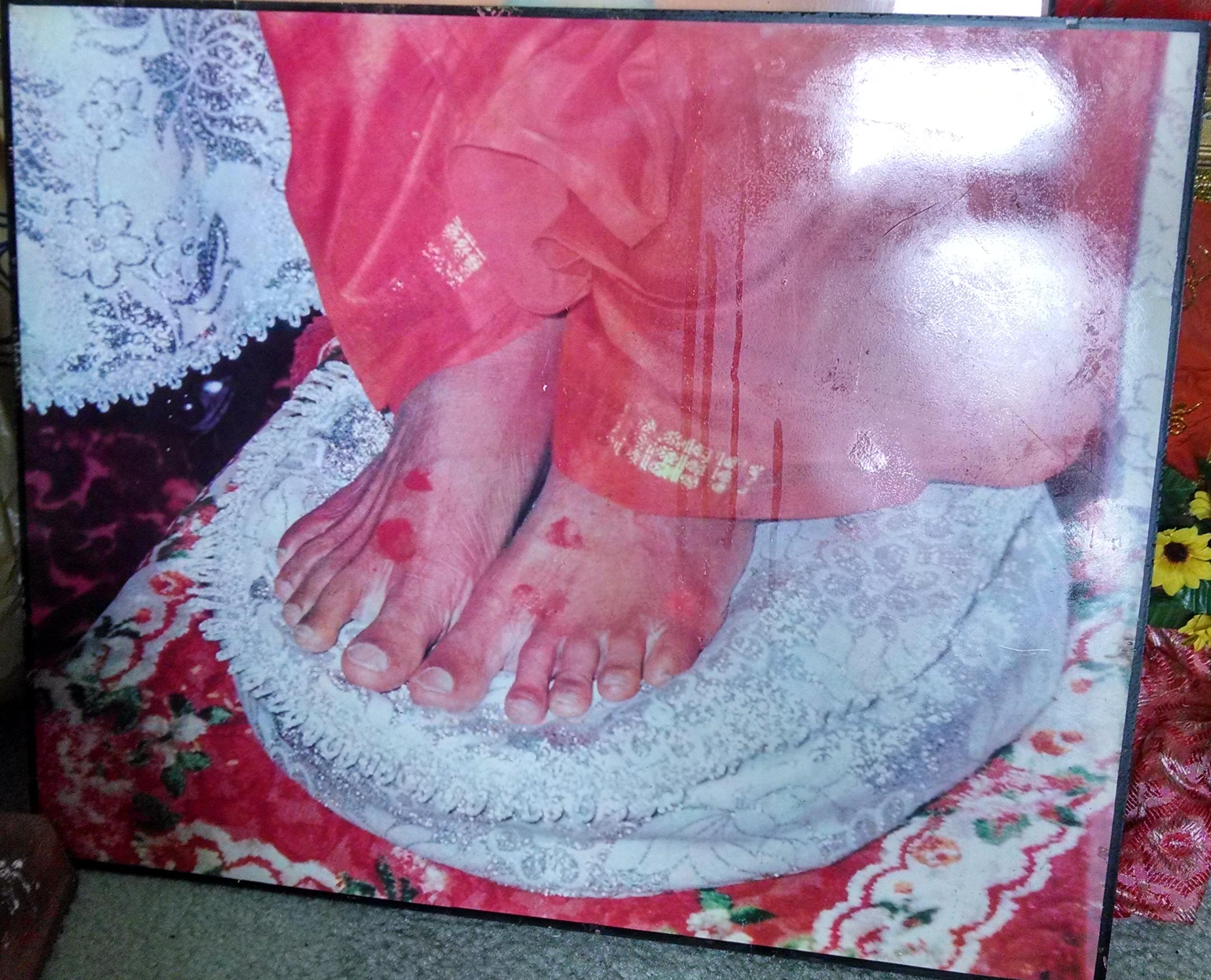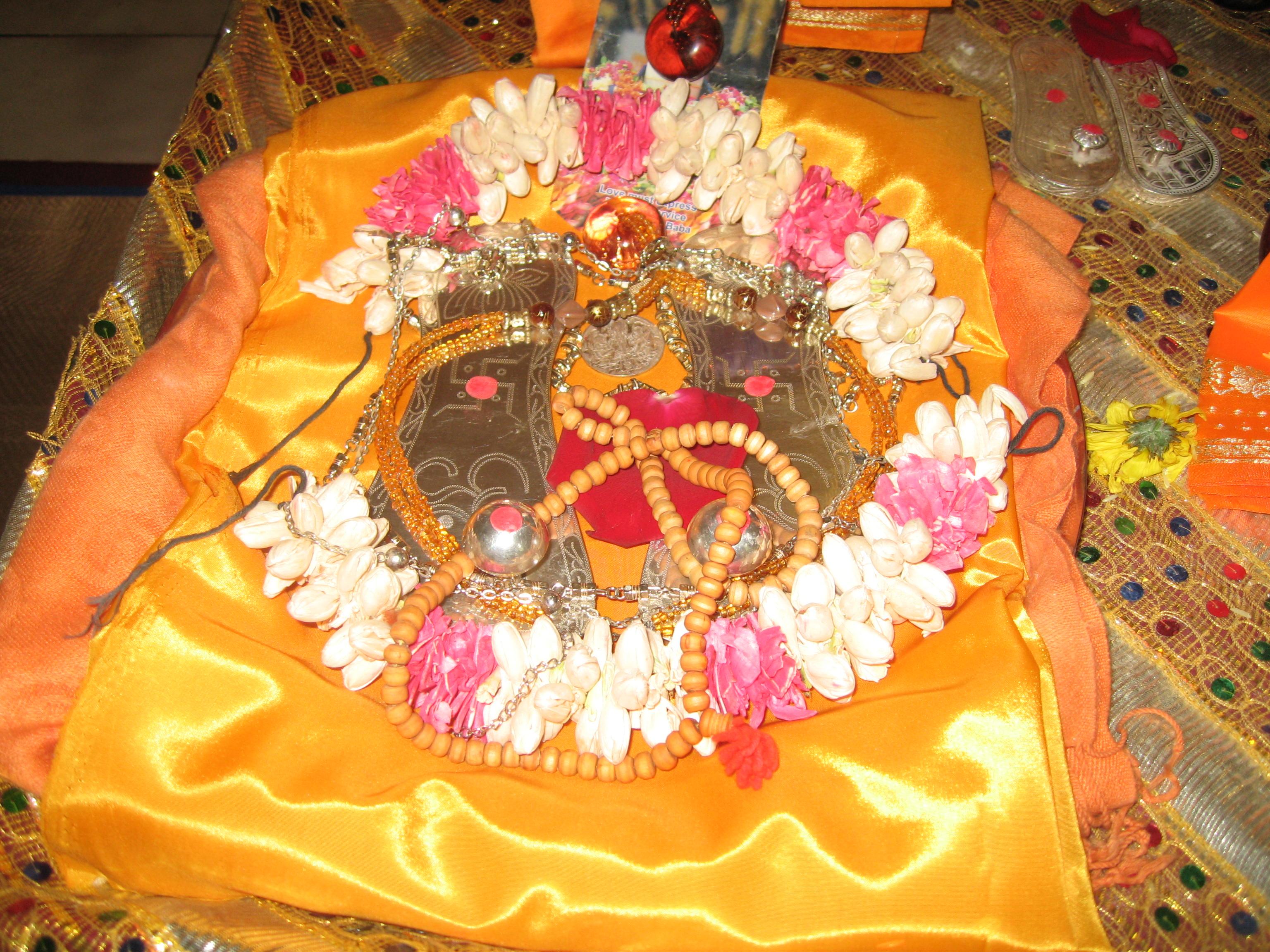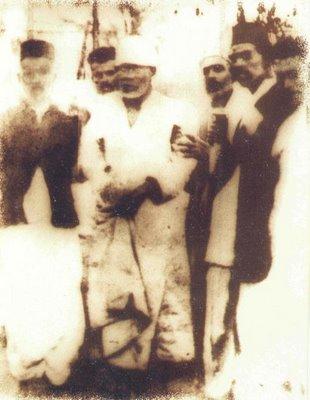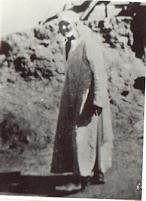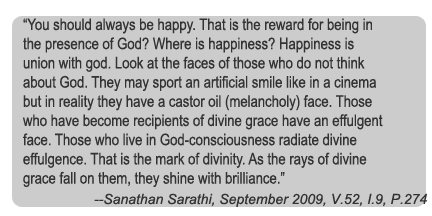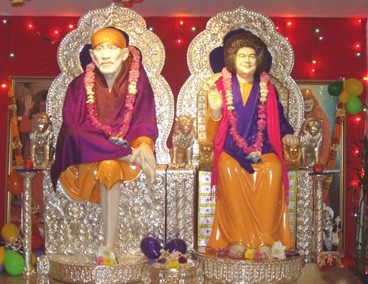By The Editor, Sai Sandesh
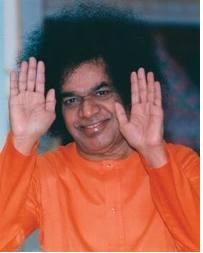 “Love my uncertainty,” says Baba. These three profound words are a gospel to those who have understood and experienced their significance. Baba has a mysterious way of bringing out the best outcome from what appear to be life’s most catastrophic and painful events.
“Love my uncertainty,” says Baba. These three profound words are a gospel to those who have understood and experienced their significance. Baba has a mysterious way of bringing out the best outcome from what appear to be life’s most catastrophic and painful events.
Recently, when I was in Puttaparthi I heard the story of a woman who was desperately trying to give a letter to Baba. The letter was an outpouring of her deepest feelings, for she had sought relief from many troubling circumstances and had requested Baba to save her little daughter who was to undergo a dangerous heart operation. When Baba came her way, He took the letter from her outstretched hands, crumpled it, and threw it back at her without even looking at it.
The woman was very disappointed that Baba did not even read her letter but was consoled by others that she was at least fortunate enough to receive something that had touched Baba’s divine hand. She was in for a surprise, though. When she visited the hospital after this incidence a strange miracle happened. The very doctors who had diagnosed her daughter’s condition were discussing a mind-boggling miracle. A series of tests revealed that the child was absolutely normal. There was no need for surgery, since her heart ailment had been cured mysteriously, nay, miraculously. It was then that the mother realized why Baba had thrown away the letter. The outward act of throwing the letter was nothing but an indication that He had canceled the ailment that was troubling the little child. How merciful, how compassionate. Not only Baba, all saints act in this manner.
Once, two devotees, husband and wife, visited the ashram of Swami Nityananda. The two were unable to have children. Every time the wife would conceive, the pregnancy would terminate inexplicably. When the wife was carrying again, the couple decided to visit Swami Nityananda and seek His divine blessings. They dutifully made up a temporary home within the ashram’s premises and would devotedly serve the Master every single day. Much to their dismay, however, the wife lost the baby again and the couple lost all hope.
Someone in the ashram said, “I wish this hadn’t happened here.” At this, the sage calmly replied, “You cannot understand divine mysteries. Due to karmic forces, the same soul was repeatedly being forced to manifest in the lady’s womb. The soul was intent on deliverance (liberation) but was being dragged down due to previous bonds. His desire for liberation was so intense, he was trying to escape birth repeatedly. This time, I dragged them to my feet and as a result of my grace the soul was liberated easily. From hereon, the couple will be able to have children easily.” What appeared to be a tragic event in the human realm was really a beneficial outcome for not one, but three individuals.
A brahmin devotee was a follower of Akkalkot Maharaj (an incarnation of Lord Dattratreya). At that time, the Maharaj used to live on a tree. The devotee would often visit the saint and offer food at the foot of the tree. For some time, the saint accepted these offerings but left to live at another place. The devotee continued submitting his daily offerings, however. Unbeknownst to the devotee, a demon was devouring these offerings daily. Pleased with his devoted service, Maharaj asked the devotee to seek a boon. The brahmin did not have children for a very long time and so he sought a child from the saint. Akkalkot Maharaj (Sri Samarth) said, “A child will come, but he will go away.”
The brahmin’s wife soon gave birth to a son. When the child grew up, the father took him to visit Sri Akkalkot Maharaj’s temple. As soon as they reached within the precincts of the temple, the child became terrified and refused to go closer to the deity. The father persisted, however, and dragged the boy to the sanctum sanctorum, but much to his dismay, the boy died in the Swami’s presence and the father was grief-stricken. Immediately, the saint appeared there and consoled the wailing devotee by reminding him of what he forewarned (A child will come, but he will go away). The Maharaj then explained that the son was really the demon who had partaken of the holy food. By bringing the son in the saint’s holy presence, Akkalkot Maharaj had liberated him from his painful existence. The brahmin finally realized God’s workings and sought blessings to have another child. Due to God’s grace a son did take birth in a very short period of time and the entire family lived happily.
Such are God’s workings. Always mysterious, but always beneficial.
The Guru Charitra narrates the wonderful account of a devotee whom the Lord Dattatreya visited in His physical form. The Lord appeared at the doorstep of the devotee in the form of a monk begging for food. The devotee was not at home and his wife attended to the needs of the Guru. On His way out, the Lord uprooted a vegetable plant that was the only source of meals for the family. When the wife discovered this, she was petrified and wailed inconsolably. The devotee returned to find his wife bemoaning the loss.
He was a true devotee, however, and explained to her the importance of equanimity in the wake of pain and pleasure, both products of our own actions. After the explanation, he tried to replant the tree and in the process discovered a pot of gold that was buried there. Had the Lord not inflicted the momentary pain, could the family have discovered the buried treasure?
Lord Krishna gave a unique demonstration about this truth as well. A brahmin devotee once came to seek His blessings. On securing Krishna’s blessings, the brahmin’s cow (his only source of sustenance) died immediately. Arjuna was by Krishna’s side when this happened and he did not lose the opportunity to question the strange occurrence.
The Divine One immediately explained that He wanted to grace the brahmin with divine blessings, a pre-requisite for which would be unconditional reliance on God. Reliance on one’s own possessions would only hinder the divine blessings that were to fill the brahmin’s life. In the worldly sense this event would be considered a tragedy, but in reality it served as blessing in disguise, for the brahmin’s responsibility was being borne by none other than the merciful Lord Himself.
When we are surrounded by difficult circumstances, we often experience pain and disappointment, but it is only when we look back at the course of events that we realize that all did happen for a good reason, for our own good. Our vision is short-sighted but God has an aerial view of things and so He knows what is best for us and always does what is best for us in the long run.


